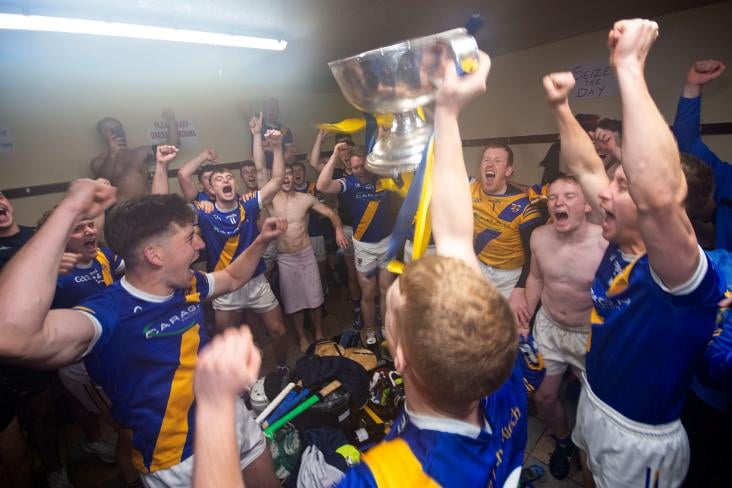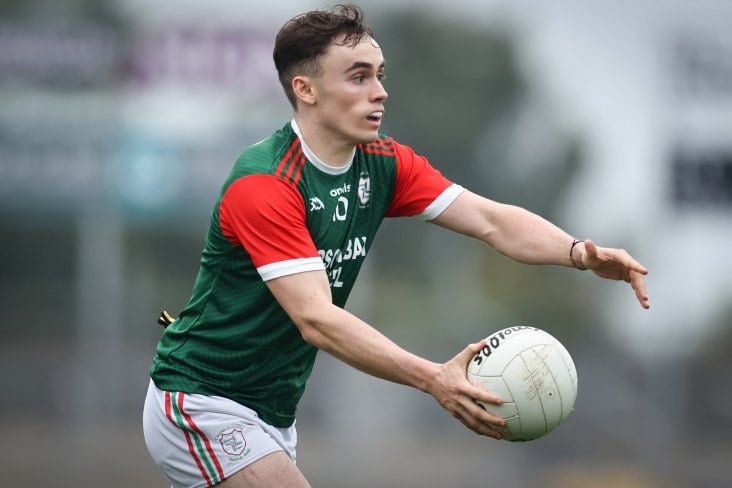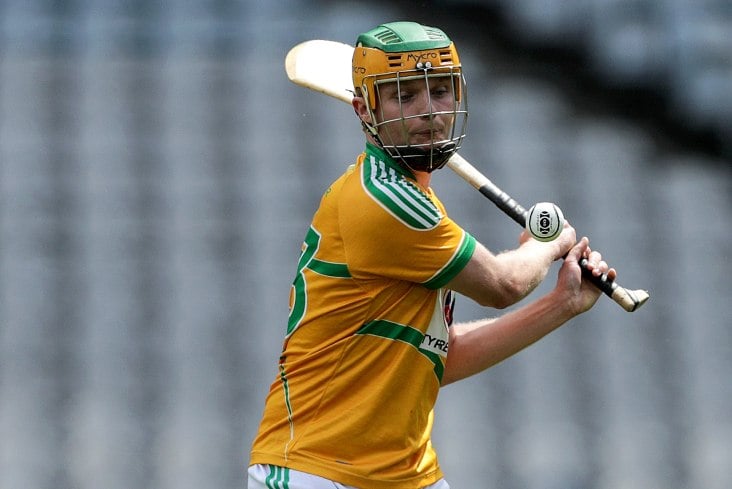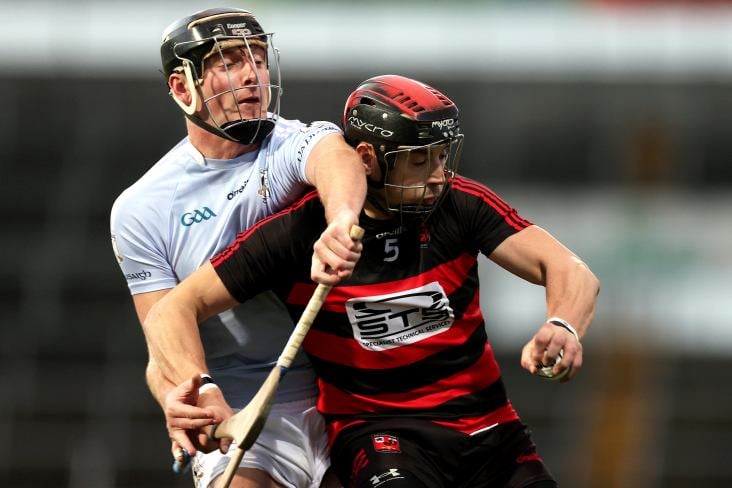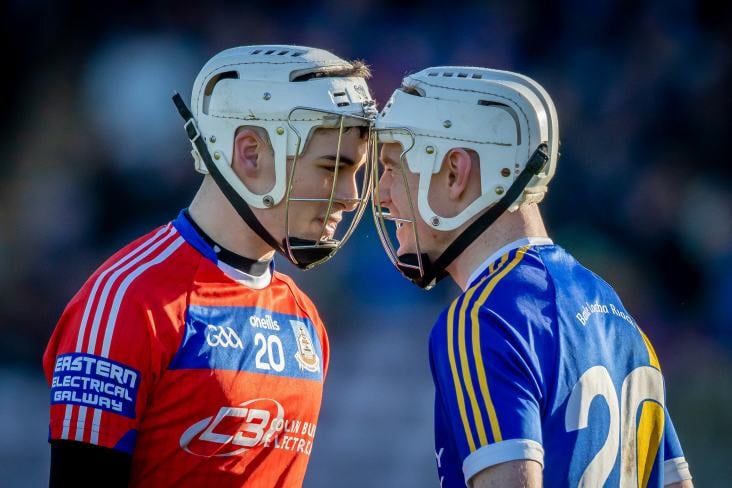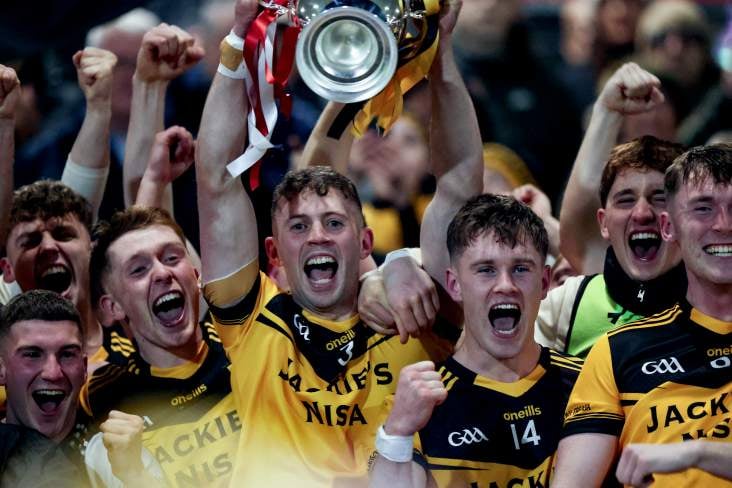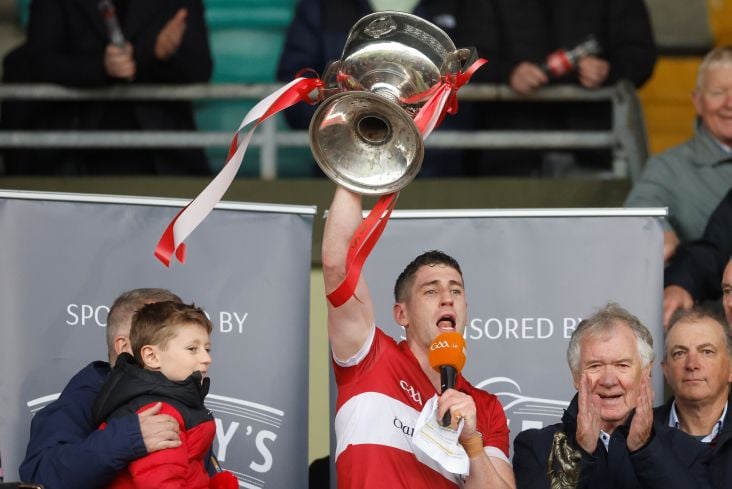"It's good to talk" - Tullylish's Corbett hails importance of LGFA Talk initiative
November 01, 2025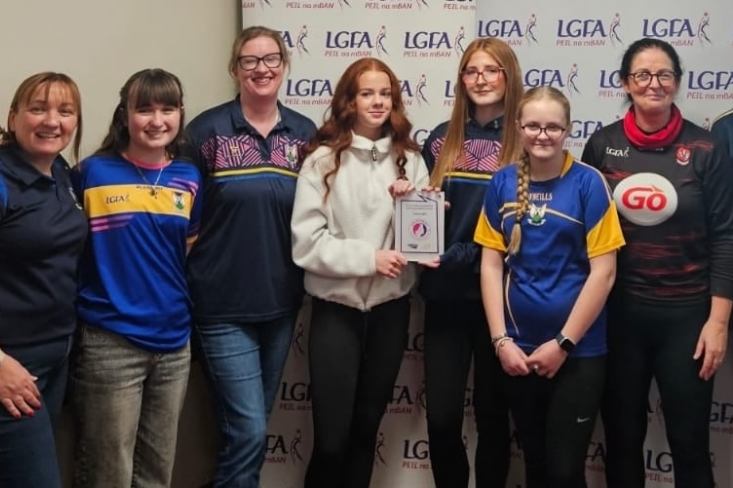
Tullylish healthy club officer and project lead Shauna Corbett, third from left, with Colleen McDermott, Aoife McDermott, Gerry Doherty (Ulster LGFA president), Marianne Corbett, Sophie Treanor, Eimear Barry and Ronan Barry at the presentation for the LGFA TALK Project in Queen's PEC Belfast
by Daire Walsh
While their initial involvement with the programme has reached a conclusion, Shauna Corbett has said County Down club Tullylish are using their recent experience as part of the LGFA TALK Project as a starting point.
Originally launched by the association back in 2020, the LGFA TALK Project is a six-week club-based initiative aimed at increasing the awareness of positive mental health in young members aged between 13 and 18 years, as well as removing the stigma associated with the subject area. This project (run in partnership with the NI Youth Forum & Ulster LGFA) has been rolled out to clubs within the six counties of Northern Ireland since its inception and Tullylish were chosen as the Down representatives for 2025.
Last Saturday saw the participants from the Lawrencetown-based outfit graduating from the programme at Queen’s PEC in Belfast, but as Tullylish’s healthy club officer and project lead Corbett explains, they will be looking to expand on their time with this initiative in the coming weeks and months.
“Very much we’re using it as a starting point because there are so many things that we see that we can take from the project. Different things and wee strategies that we are going to try and keep up moving forward. We started our ‘Couch to 5K’ last Monday with the girls because that was one of the things that they fed back that they wanted to do over the winter,” Corbett acknowledged.
“One of the other strategies then included the traffic light system. You’ve got your red, green and amber. That can be coloured disks thrown into the bucket before a training session. It’s anonymous, but it gives the coach an idea. If there’s any red or amber in there, that means there are some people here tonight that are just not feeling it.
“There’s other stuff going on and it means too that they can sort of say ‘Look, I noticed there’s a couple of reds there. If there is any issues that anybody needs to speak about at the end or before training, don’t be afraid to say’. That [strategy] is something that is a really easy one, but a really effective one.”
Over the course of their six weeks within the LGFA TALK Project, the Tullylish players (comprising 27 girls from the club’s U14 and U16 teams) took part in a number of other interesting activities.
This included the production of a TikTok video with the players and jersey presentations at matches – most notably for an U14 championship semi-final and an U16 league final – with each girl giving their team-mate positive feedback in advance of the game.
They also took part in two Pilates sessions and with Corbett’s own background being in physiotherapy, she was eager for the players to reap the benefits of this particular activity.
“Our first session was extremely interesting. Like every club, you’re vying for space at different times for availability of halls and things like that. We’re very lucky in Tullylish, we recently finished there this year a training hub that our local boxing club would use then as well.
“Our boxers were in the training hub that night, but they had offered to let us have the boxing ring to use, which the girls were delighted about. Because a lot of them hadn’t been in a boxing ring, but it meant then that we could buddy up. We did the Pilates session in the boxing ring, somewhere nice and soft to lie down.
“They were buddying up, they were in teams. That worked well as well, where they had to talk their partner through the different exercises. Then the second session we did was very much a recovery session after the U16 league final. That was great. We were able to work in a wee bit more relaxation and mindfulness and things like that with it. The girls all enjoyed it.”
As mentioned above, the LGFA TALK Project is very much focused on not just raising awareness of positive mental health amongst young footballers, but also on removing the stigma that often surrounds it.
As someone who is the parent of five children – all of whom are actively involved in Tullylish from juvenile level all the way up to the adult grades – Corbett recognises how vital it can be to focus on a subject such as positive mental health.
“I see the importance of that [mental health awareness] and the importance of the young people feeling they have a safe space to vocalise or talk about any concerns they might be having. Sometimes that can be making that awareness of ‘it’s actually okay to say you’re not feeling great, but you’re not sure why you’re not feeling great’ or why you’re struggling,” Corbett added.
“To give that sense of support that they feel they’re not going to be laughed at for feeling that way. Or again where people feel that they don’t have to get in a group setting. To have that opportunity of knowing where they can get extra support if they need that. Having that framework within the club where you know who you can speak to if you need to.
“Where we can direct them to extra support or how to link with family, how to link in with your team-mates as well. Recognising how we can all recognise and link in with other people around us. To look out for that, to see are you aware of anybody who might be struggling and how much it can mean to somebody just to link in with that person and say ‘how are you, how are things?’
“It was trying to make sure, from that element, we were promoting that. Because obviously within our games, you come to that U14 and U16 stage where you’re going from Go Games to where games are becoming more competitive.
“Ultimately whenever you’re in that football team, you want to do your best with playing football and improve your skills. Be competitive and do well in where you’re going in your league and then championship and everything like that, but we don’t want that to come at a price where people feel they’re not part of the team or they’re not making a contribution to the team.”
Tweet